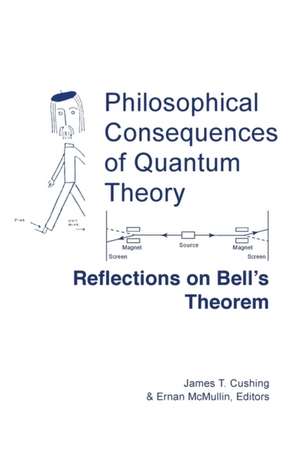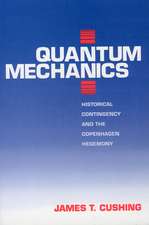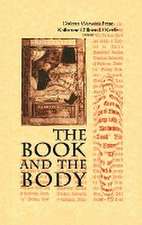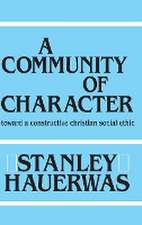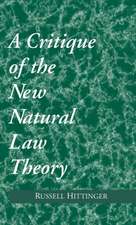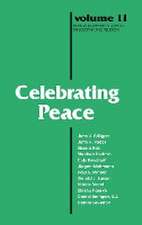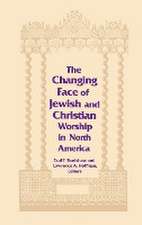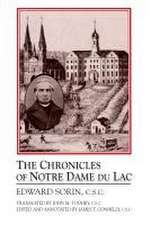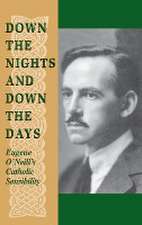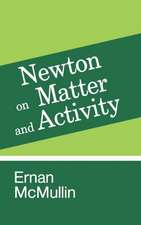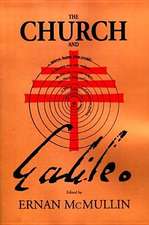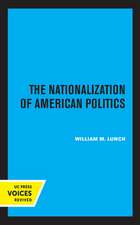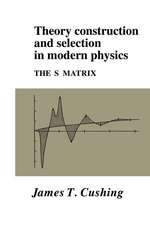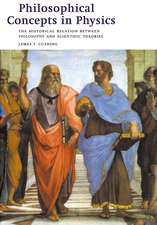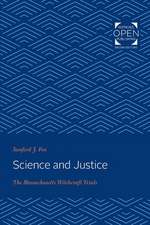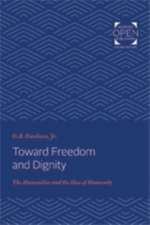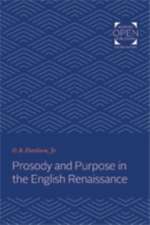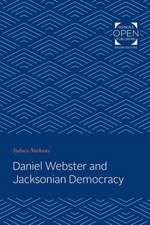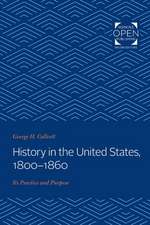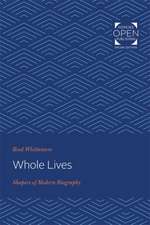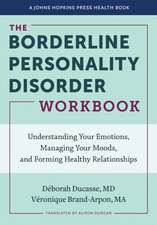Philosophical Consequences of Quantum Theory – Reflections on Bell`s Theorem: Studies in Science and the Humanities from the Reilly Center for Science, Technology, and Values
Autor James T. Cushing, Ernan Mcmullinen Limba Engleză Paperback – 29 iun 1989
From the beginning, the implications of quantum theory for our most general understanding of the world have been a matter of intense debate. Einstein argues that the theory had to be regarded as fundamentally incomplete. Its inability, for example, to predict the exact time of decay of a single radioactive atom had to be due to a failure of the theory and not due to a permanent inability on our part or a fundamental indeterminism in nature itself.
In 1964, John Bell derived a theorem which showed that any deterministic theory which preserved "locality" (i.e., which rejected action at a distance) would have certain consequences for measurements performed at a distance from one another. An experimental check seems to show that these consequences are not, in fact, realized. The correlation between the sets of events is much stronger than any "local" deterministic theory could allow. What is more, this stronger correlation is precisely that which is predicted by quantum theory. The astonishing result is that local deterministic theories of the classical sort seem to be permanently excluded. Not only can the individual decay not be predicted, but no future theory can ever predict it. The contributors in this volume wrestle with this conclusion. Some welcome it; others leave open a return to at least some kind of deterministic world, one which must however allow something like action-at-a distance.
| Toate formatele și edițiile | Preț | Express |
|---|---|---|
| Paperback (1) | 232.86 lei 6-8 săpt. | |
| MR – University of Notre Dame Press – 29 iun 1989 | 232.86 lei 6-8 săpt. | |
| Hardback (1) | 592.07 lei 6-8 săpt. | |
| MR – University of Notre Dame Press – 29 iun 1989 | 592.07 lei 6-8 săpt. |
Preț: 232.86 lei
Nou
Puncte Express: 349
Preț estimativ în valută:
44.56€ • 46.04$ • 37.09£
44.56€ • 46.04$ • 37.09£
Carte tipărită la comandă
Livrare economică 26 martie-09 aprilie
Preluare comenzi: 021 569.72.76
Specificații
ISBN-13: 9780268015794
ISBN-10: 0268015791
Pagini: 330
Dimensiuni: 152 x 228 x 19 mm
Greutate: 0.45 kg
Ediția:1
Editura: MR – University of Notre Dame Press
Seria Studies in Science and the Humanities from the Reilly Center for Science, Technology, and Values
ISBN-10: 0268015791
Pagini: 330
Dimensiuni: 152 x 228 x 19 mm
Greutate: 0.45 kg
Ediția:1
Editura: MR – University of Notre Dame Press
Seria Studies in Science and the Humanities from the Reilly Center for Science, Technology, and Values
Recenzii
"The papers collected here demonstrate how analytic philosophy of science should be done. Quantum mechanics may be mysterious in some of its aspects, but those who wish to peddle mysticism on the basis on quantum theory would do well to stay away from this excellent collection of philosophical essays." —Canadian Philosophical Reviews
"Prominent philosopher-scientists, from Abner Shimony to Paul Teller, contribute articles . . . detailing presumptions and ambiguities of quantum measurement, written especially for the nonspecialist. Some highlights include Mermin's powerful (and amusing) 'device' to highlight the 'paradox' of quantum correlations, Linda Wessels' thorough catalog of specific implicit 'axioms' of the discussion, and Cushing's prospective overview. Other gems, including some simplified models of Bell's arguments, and a range of ontological frameworks—from realism to 'holism'—make this an urgently recommended work." —Choice
Notă biografică
James T. Cushing was a US-American theoretical physicist and philosopher of science. He was professor of physics as well as professor of philosophy at the University of Notre Dame.
Ernan McMullin was John Cardinal O'Hara Professor Emeritus of Philosophy at the University of Notre Dame.
Descriere
Descriere de la o altă ediție sau format:
From the beginning, the implications of quantum theory for our most general understanding of the world have been a matter of intense debate. The contributors to this volume wrestle with questions such as how can a clash between the two fundamental theories of modern physics, relativity and quantum theory, be avoided?
From the beginning, the implications of quantum theory for our most general understanding of the world have been a matter of intense debate. The contributors to this volume wrestle with questions such as how can a clash between the two fundamental theories of modern physics, relativity and quantum theory, be avoided?
